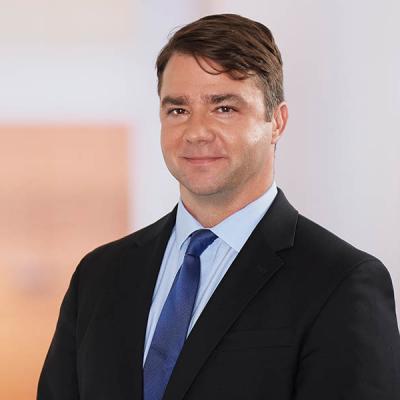Supreme Court Rejects USPTO Attorney Fee Policy
On December 11, 2019, the U.S. Supreme Court struck down the U.S. Patent and Trademark Office’s (USPTO) controversial policy of shifting attorneys’ fees in Peter v. NantKwest, Case No. 18-801. The Court ruled that the USPTO policy ran counter to the long-accepted “American Rule,” which says “[e]ach litigant pays his own attorney’s fees, win or lose, unless a statute or contract provides otherwise.”
The question presented to the Court was whether the American Rule presumption applied to 35 U.S.C. §145. More specifically, the question was whether the “expenses” paid by an applicant “include[d] the salaries of attorney and paralegal employees of the United States Patent and Trademark Office.” On behalf of the Court, Justice Sonia Sotomayor explained that the American Rule does apply to § 145 and that the salary of attorneys and paralegals of the USPTO should not be included. Justice Sotomayor wrote that the USPTO’s recent broadened interpretation of the “expenses” provision of § 145 that “permits an unsuccessful government agency to recover its expenses… would be a radical departure from longstanding fee-shifting principles adhered to in a wide range of contexts.”
When a patent applicant is not satisfied with the decision of the Patent and Trial Appeal Board (PTAB), the applicant has two avenues to challenge an adverse decision. The first is a direct appeal to the United States Court of Appeals for the Federal Circuit under 35 U.S.C. § 141. The second, under 35 U.S.C. §145, is to file a civil action in district court at the Eastern District of Virginia. The primary differences between the two options are that § 145 actions allow the applicant to introduce new evidence and that “[a]ll the expenses of the proceedings shall be paid by the applicant.” For years, the USPTO interpreted the “expenses” provision to mean relatively minor expenses, like travel fees. However, in 2013 the USPTO broadened its interpretation of “expenses” to include attorneys’ fees, irrespective of who wins the appeal. The USPTO argued that change was necessary to cover the increasing costs of litigation.
In the instant case, the USPTO made two primary arguments against applying the American Rule to § 145. First, the USPTO argued that the American Rule did not apply to § 145 because the rule only applies to prevailing-party statutes. Because §145 requires one party to pay all the expenses regardless of outcome, the USPTO argued that it is not a prevailing-party statute and thus “is not a statute subject to the presumption” that the American Rule applies. Second, the USPTO argued that in the past the Court “has used the term ‘expenses’ to mean ‘attorney’s fees,’” by citing to several past decisions. In effect, the USPTO argued that § 145 explicitly provided that the American Rule did not apply.
The Court disagreed with both of these arguments. In a unanimous decision, ruling in favor of immunotherapy company, NantKwest Inc., the Court held that the “expenses” provision should not be read to include attorneys’ fees. The Court noted that it “has never suggested that any statute is exempt from the presumption against fee shifting” and that it has not “limited its American Rule inquiries to prevailing-party statutes.” Instead, the Court determined that the American Rule is “the starting point for assessing whether § 145 authorizes payment of the USPTO’s legal fees.”
Guided by the American Rule, the Court stated that the “reference to ‘expenses’ in § 145 does not invoke attorney’s fees with the kind of ‘clarity we have required to deviate from the American Rule.’” The Court further explained that, contrary to the USPTO’s argument, “the term ‘expenses’ alone has never been considered to authorize an award of attorneys’ fees with sufficient clarity to overcome the American Rule presumption.”
With the clarity that this case provides on the issue of attorneys’ fees, it will be interesting to see if more patent applicants use § 145 when faced with an adverse decision from the PTAB.


